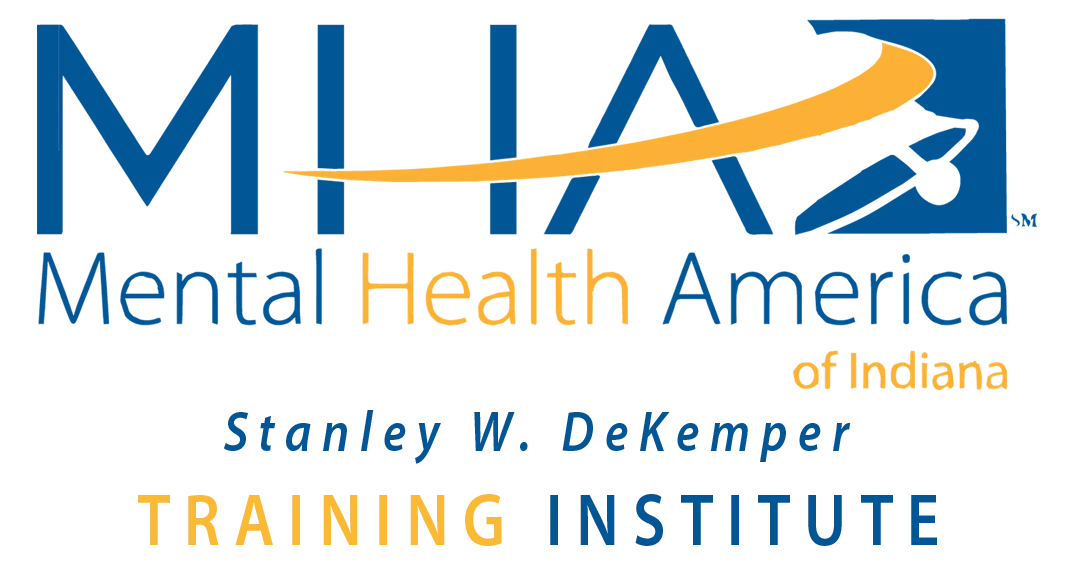Recovery Support

Recovery Support Ethics
DESCRIPTION
Recovery support ethics is a two-day, interactive discussion around the ethical domains and criteria that recovery support professionals should follow to maximize outcomes for everyone the recovery support professional supports. All participants will learn more about how to maintain ethical standards around various topics that are involved with recovery support work. Upon completion of the course, participants will be able to maintain appropriate ethical standards in recovery support services.
LEARNING OBJECTIVES
- Define Ethics and how they relate to recovery support services
- Understand recovery support core competencies
- Learn various skills necessary to provide ethical services
- Identify processes for ethical decision making
- Create strategies for ethical decision making
Duration
16 hours (2-days)
CEU Credits
16
Presented by

Recovery Support Fundamentals: A Foundational Skills-Based Approach
DESCRIPTION
Recovery Support Fundamentals: A Foundational Skills Based Approach is an immersive and interactive exploration of what it means to provide person-centered, ethical, and professional recovery support in addictive, mental health, and crisis related situations. Skills such as motivational interviewing, supporting multiple pathways of recovery/wellness, stages of change and other skills will be explored and discussed. Join us to learn the fundamental skills to become an effective and supportive recovery support professional.
LEARNING OBJECTIVES
- Recognize how professional recovery support differs from personal recovery support.
- Identify skills domains of recovery coaching.
- Understand the role of recovery coaching related to a person’s substance use.
- Understand the role of recovery coaching related to a person’s mental health.
- How to recognize and respond to crisis situations.
- Learn how social determinates of health impact a person’s life.
- Explore the spectrum of harm reduction.
- Apply the stages of change.
- Demonstrate motivational interviewing.
- Develop effective group facilitation skills.
- Understand de-escalation techniques.
- Learn suicide prevention techniques.
- Recognize the unique approaches to family recovery coaching.
- Explore transference and countertransference.
- Identify methods to support those living with behavioral addictions and justice involvement.
- Understand goal setting and documentation.
- Practice skills used to provide recovery coaching services.
- Explore credentialing and career development.
Duration
35 hours (5-days)
CEU Credits
35
Presented by

Recovery Support Supervision Fundamentals
DESCRIPTION
Recovery Support Supervision fundamentals is a two-day exploration of the skills and knowledge required to provide supportive, and ethical, leadership to recovery support professionals. This includes providing strength-based, supportive leadership for a professional recovery support team. Ethical leadership is based upon a non-clinical approach to empowering the recovery support professional to provide person-centered support.
LEARNING OBJECTIVES
- Define recovery support professionals, their role, and their ethical responsibilities
- Identify how to provide support and education to recovery support professionals
- Identify skills necessary to provide quality and ethical recovery support professional leadership
- Develop a plan of action to effectively lead and support a recovery support professional team
Duration
14 hours (Two days)
CEU Credits
14
Presented by


Adult Mental Health First Aid
DESCRIPTION
This course teaches people how to recognize signs of mental health or substance use challenges in adults ages 18 and older, how to offer and provide initial help, and how to guide a person toward appropriate care if necessary. Topics covered include anxiety, depression, psychosis, and addictions.
LEARNING OBJECTIVES
- Recognize potential risk factors and warning signs for several mental health problems
- Use 5-step action plan to assist individuals to connect with professional help
- Interpret the prevalence of mental health disorders I the U.S.
- Apply knowledge of appropriate resources
- Assess their own thoughts and values around mental health disorders
Duration
8 hours
CEU Credits
8
Presented by

HIV/AIDS Education & Risk Reduction
DESCRIPTION
Training assist addiction professionals in helping their clients identify “high risk” activities/life styles that may increase the risk of exposure to HIV and/or the risk of transmitting HIV to others. The goal of this training is to improve the ability of addiction professionals in a variety of settings to support individuals in making behavior changes that will reduce their risk of acquiring and/or transmitting HIV as well as other health related conditions such as Hepatitis C.
LEARNING OBJECTIVES
- Understanding HIV
- Understanding Risk
- Understanding AIDS
- Understanding Hepatitis C
Duration
6 hours
CEU Credits
6
Presented by



